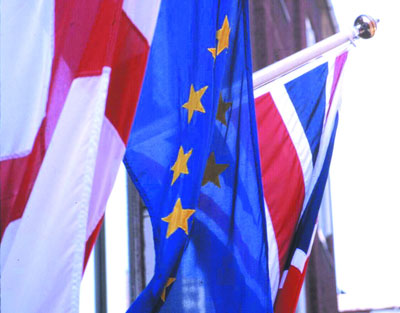This post was contributed by Professor Kiran Klaus Patel, writer for Birkbeck’s Reluctant Internationalists project. This first appeared on the project’s blog on 27 November 2015
Once again, the European Union is mired in crisis. First the debt crisis and the desperate attempts to keep Greece within the Eurozone; then the high number of refugees landing on European shores; and now the security threats of Islamist terrorism: in none of these cases does the EU cut a fine figure.
Intelligence cooperation between its member states remains inadequate. Fences and nation-centered solutions seem to dominate responses to the rising number of refugees and migrants. And before that, Greece already showcased the lack of European consensus on values such as solidarity and reliability. In all these (and other) instances, the EU is accused of not delivering. Many observers feel that the Union is on the verge of collapse, and history time and again features prominently to support such claims. In a recent article, for instance, Brendan Simms and Timothy Less invoke the situation in Austria-Hungary in 1918, and in the Soviet Union and Yugoslavia in 1990, to explain where the EU stands today. Against this backdrop, they predict the “disintegration of the European project” unless draconian measures are taken.[1]
History does not repeat itself
Of course, nobody knows what the future will bring. Still, many scenarios and historical analogies seem rather far-fetched. They tend to neglect the complexities of the past (and the present), as a problem that has already been critiqued in earlier essays, for instance by Jessica Reinisch and Dora Vargha in their blog posts on questions of migration. History does not repeat itself. And if history has a lesson, then it is that the EU (including its predecessors) is surprisingly resilient.
Doom-and-gloom talk has accompanied the integration process since it began in the first postwar decade. In fact, many of its deepest crises eventually led to an expansion of activities and competences. Already the EU’s founding fathers highlighted this phenomenon. In his memoirs, Jean Monnet argued that Europe would be built on crises.[2] For him, “crisis” did not rhyme with “collapse,” but with further integration steps. And, indeed, the 1970s and early 1980s – at the time characterized as a period of stagnation and “Eurosclerosis” – witnessed the European Communities’ first enlargement rounds and advances in several new fields, including foreign and monetary policies.
This does not mean that times were rosy for Brussels. But it certainly did not let a serious crisis go to waste. Similar dynamics also characterize the ongoing debates on the Eurozone, for instance. In a strictly institutional sense, the EU has grown stronger in the past few years by creating a series of new instruments such as the European Financial Stability Facility (EFSF) and the European Stability Mechanism (ESM). Beyond instituting new measures, the more active role of the European Central Bank is another example of how the European Union has become a more important player during and due to the crisis.
This does not mean that all of this is good. Most EU reforms of this kind are built on unstable compromises, prone to lead to new problems later. Moreover, such dynamics do not imply that integration is progressing steadily. The EU’s founding fathers would be frustrated if they saw the direction in which their project has developed. The prospects of a full-fledged federal union – as the ultimate goal of many of those who stood at the EU’s cradle – seem rather dim today. Moreover, there have been major defeats in the course of the past decades—some real, others mainly symbolic. While the plans to create a European Defense Community that failed in 1954 belong in the first of these categories, the non-ratification of the 2004 Constitutional Treaty is more part of the latter. Crisis talk loomed large in both these moments, but their wider context is telling: 1954 ultimately sparked new efforts to deepen integration, clearing the route to the Treaties of Rome less than three years later. Fifty years on, the EU also quickly identified an alternative, leading to the Lisbon Treaty of 2009. The dogs bark, the caravan passes on.
Strength in flexibility
Even if the EU continues to exist, everything about it has changed massively over time. The heavy-handed form of economic intervention characteristic of the early Common Agricultural Policy of the 1960s has found few successors. Over and over, the institutional balances have been readjusted; supranational tendencies have been challenged by a more intergovernmental approach, creating a highly hybrid creature. From a somewhat Keynesian orientation, the EU has long made a swing to a more neoliberal economic approach. And these are just a few examples. It is easy to criticize these alterations as opportunistic. Its very flexibility, however, has also made the EU particularly resilient. In many ways, it operates much more as a platform that allows (groups of) its member states to take initiatives, than as a federal state.
This also makes historical analogies problematic. Today’s EU is remarkably different from entities and the periods Simms, Less, and others compare it to. Nobody knows exactly what the EU is—but it is certainly not a state or an empire. Admittedly, it has far-reaching sovereignty rights in monetary matters, along with regulatory competences in many policy domains, including energy, consumer protection, and transport. This multi-dimensional character makes it less likely to fall into dysfunction – a failure in one field can be compensated by an active role in other policy domains. Coal and steel are the obvious examples: from being the starting point of the process leading to today’s EU, they have now become marginal. But despite its role in so many policy fields, the EU has never acquired full federal or state-like qualities. With its hybrid nature, it still shares some characteristics with International Organizations and other forms of regional integration. And while empires and states dissolve and fail, International Organizations (almost) never die, as Gottfried Haberler, Susan Strange, and others argued already decades ago.[3]They might change their names or functions, but they tend to live and linger on. The worst that could happen to the EU is to be reduced to a rather technical International Organization, a fate it would then share with many other IOs.
But even that is unlikely, mainly because of the world the EU operates in. Globalization and the rise of a dense web of institutionalized connections between states and societies shape today’s Europe. The EU cooperates with other institutions to an extent unforeseen in the nineteenth century or Socialist nation-states and empires. Today, states and organizations such as the EU are all embedded in a dense web of more or less formalized linkages. And often, the European Union is only one of several players, and one of several cards that its member states have up their sleeves. Witness the sudden reappearance of the Western European Union at the end of the Cold War or, more recently, the close cooperation of the IMF with the EU’s institutions in Greece and the role of the OSCE in the war in Ukraine. All this demonstrates that globalization and geopolitical constellations induce states to cooperate, and to do so, they regularly fall back on the institutions at hand.
In our times, European nation-states therefore rarely opt for either national sovereignty or the EU. Most frequently, they choose between various formats and forms of international cooperation. Together, these diverse organizations contribute to a robust and resilient architecture of cooperation, which also stabilizes the EU’s position in the world. Seen from this vantage point, even a Brexit would not lead to an automatic unwinding of the system. In fact, the first two things the United Kingdom would do after leaving is to try to rejoin EFTA, actually its own brainchild but carelessly abandoned in the 1960s, when it started to flirt with the EC and even more so in 1973, after joining the European Communities. And, secondly, to renegotiate its relationship to the EU – but this time from the weak position of an outsider.
All this does not mean that the EU is perfect, quite the contrary. It’s just very likely to stay. There is life in the old dog yet.
Kiran Klaus Patel is Jean Monnet professor of European and global history at Maastricht University in the Netherlands. His next book The New Deal: A Global History is published by Princeton University Press in January. He is presently writing a history of European cooperation and integration during the twentieth century.
[1] Brendan Simms and Timothy Less, “A Crisis without End,” New Statesman, 9 November 2015.
[2] Jean Monnet, Memoirs (London: Collins, 1978).
[3] Susan Strange, “Why Do International Organizations Never Die?”Autonomous Policy Making By International Organizations, ed. Bob Reinalda and Bertjan Verbeek (London: Routledge, 1998), 213–220; Gottfried Haberler,Economic Growth and Stability: An Analysis of Economic Change and Policies(Los Angeles: Nash Publ., 1974), 156.
Find out more

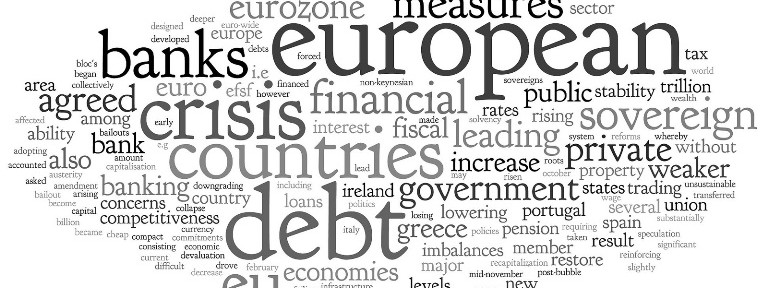
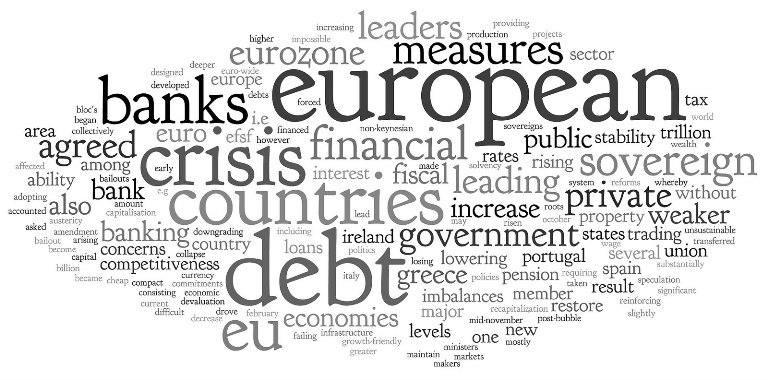
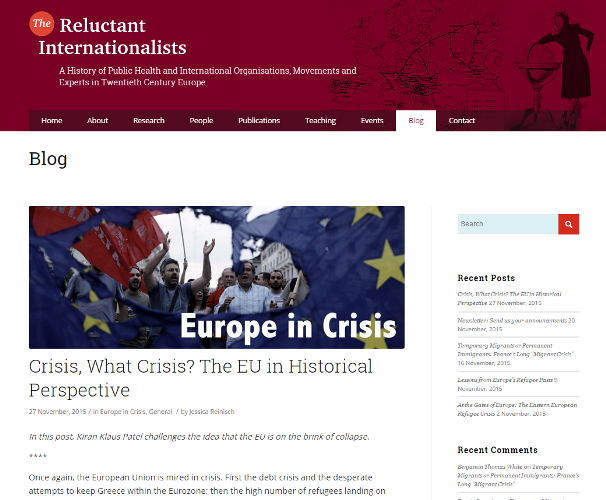


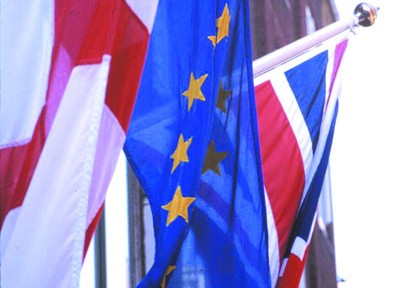



 This article was contributed by
This article was contributed by 